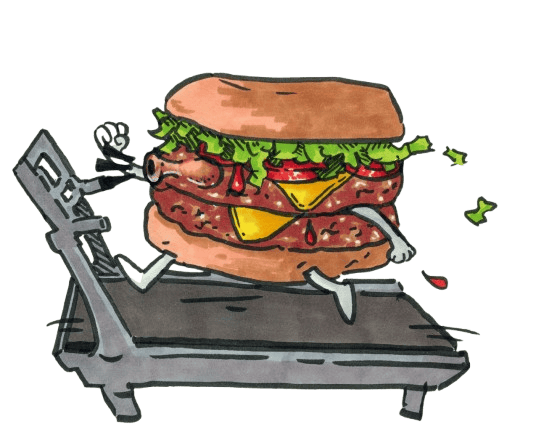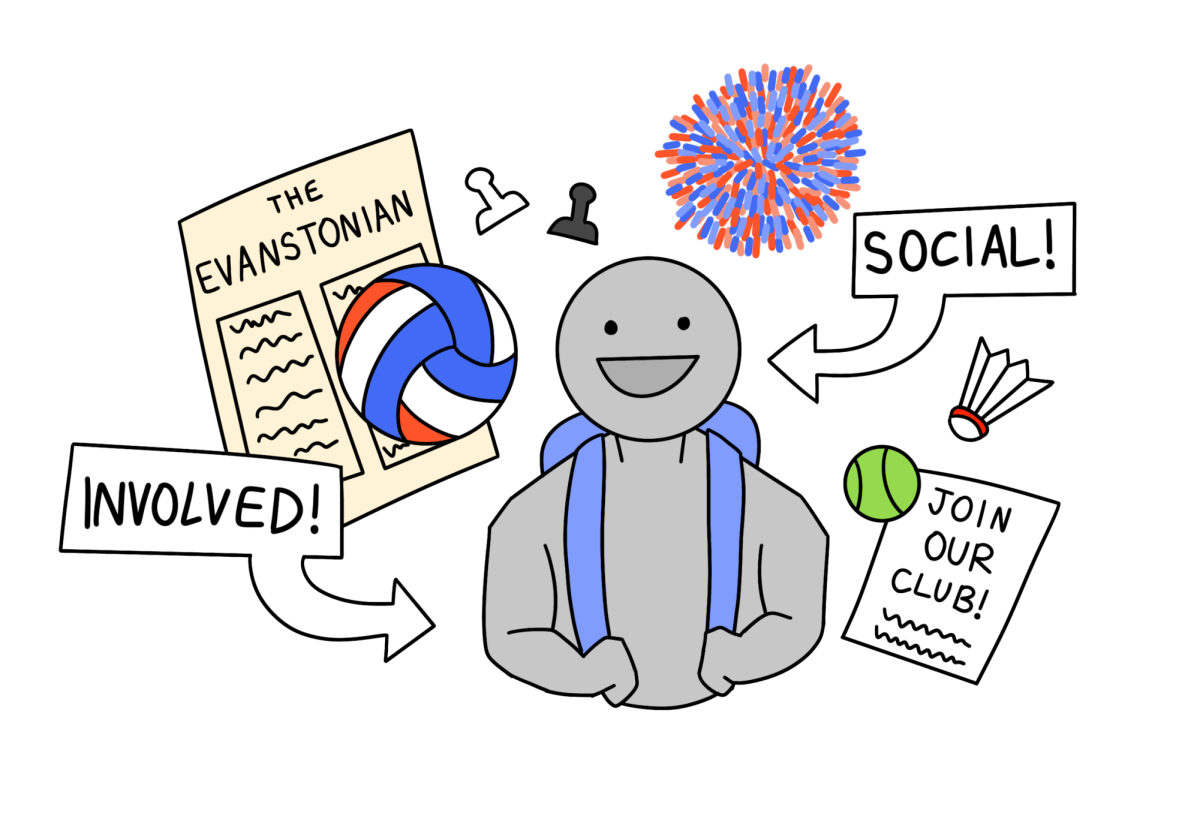With the new year passing, millions of Americans set New Year’s resolutions they wish to pursue. Some common resolutions include going to the gym, getting a job promotion, or reading more often. These are righteous goals, but there is one principally supreme resolution that Americans overlook and need to focus on: their diet.
To understand why the average American diet is so disastrous for people’s health, we need to root out the problem. The average American diet is low in fruits and vegetables and high in fat and sodium. According to the National Library of Medicine, the American diet consists of large portions, high calories, and excess sugars. The excess sugar frequently consumed in many Americans’ diets accounts for more than 13 percent of daily caloric intake, and about half of that 13 percent comes from beverages. Specifically, a 2016 study done by the Pew Research Center compared the average daily calorie consumption per capita from 1970 to 2016. The study found that Americans in 2016 consumed almost 500 more calories daily than those from 1970. Notably, the average caloric intake of fats and oils has nearly doubled from 1970 to 2016. Subsequently, the average caloric intake of grain products and sugars has increased since 1970, primarily the consumption of grains by about 30 percent.
These massive changes in diet have led to about 1 out of every 3 American adults being obese – and the negative effects that come with obesity are vast. According to the CDC, obese individual’s life expectancy is 5-20 years less than those who are not obese. Markedly, obesity goes hand in hand with developing type 2 diabetes, heart disease, stroke, and various cancers. About 20 percent of annual American deaths are caused by heart disease, and 70 percent of heart diseases are linked to obesity and a poor diet. Besides the numerous physical issues a poor diet and obesity cause, there are just as many mental health problems that develop directly due to obesity and frequently consuming a poor diet. In a 2017 study called the SMILES trials conducted by the Deakin University Food and Mood Center, they split 67 people with mild depressive symptoms up into two groups. Half were provided with adequate counseling aimed at helping improve their diet while also being fed a nutrient-rich healthy diet lacking fatty acids and processed sugars. The other half were informed about a healthy diet but did not follow any diet. The results of the trial showed that the group on the diet had significant improvements in mood and mental clarity, as well as a reduction in depressive symptoms. In contrast, the other group was found not to have experienced any significant change in their depression or cognitive function.
There is no doubt that the American diet plagues your health, but what are the specific foods that aggravate this epidemic of obesity? Cereal has been a breakfast staple in millions of Americans’ diets since the late 19th century. According to CivicScience.com, 70 percent of American households consume cereal, and 12 percent consume cereal up to 5 times per week. Unbeknownst to many, cereal is one of the worst foods to put in your body. Mega-corporations such as Kellogg General Mills have brainwashed millions of Americans since the 1930s, piercing their target audience with persistent misleading advertisements mixed with captivating mascots to push a product detrimental to your health. Some of the most household cereal names, such as Cinnamon Toast Crunch, honey nut-cheerios, frosted flakes, and honey bunches, are filled with excess artificial sweeteners and sugars, artificial colors such as red 40, refined grains, and are extremely caloric. It is, frankly, an understatement to say this is one of the leading causes of obesity in America; over 45 million Americans start their day off with a minimum of one bowl of cereal. Another issue that fuels the American obesity crisis is that almost every global food corporation is owned by the same 10 companies, such as Coca-Cola, Nestle, General Mills, and Kellogg, just to name a few. These companies mass produce processed foods costing them pennies on the dollar and markup prices from a couple of cents to exceeding $6 for a half-filled bag of chips filled with seed oils, artificial flavors, colors, and unsustainable packaging. It isn’t just chips and cereals, small companies whose mission is to escape the monopoly of processed foods and to produce sustainable whole food products are dominated in a market filled with whales.
Walking a block without encountering a McDonald’s or other fast food restaurant is difficult in most cities today. Some corporations, like Chipotle and Starbucks, market themselves as healthier alternatives to traditional fast food, but this claim is misleading. These corporations use a method called “Health Washing.” This term is most likely unfamiliar to many people. In short, it is a strategy companies use to mislead consumers to create the illusion that their product is healthier than it is. Chipotle, while being a better alternative to other fast food options, has calorically dense meals and cooks their proteins in seed oils, many of which are banned in Europe due to chemical extraction measures and the creation of trans fats. As mentioned earlier, another prominent example is the branding associated with breakfast cereals. The boxes are more often than not covered with healthwashing claims such as “high in fiber,” “low in sugar,” or “a good source of vitamins.” These claims do not measure up to the concealed negatives of eating many cereals, but they trick consumers into believing it is a good breakfast option by adding eye-catching claims on the boxes.
Of course, it is unreasonable to assert that every American needs to improve their diet, as this is far from the truth. The silver lining to the American diet crisis is that many content creators on social media platforms such as TikTok and Instagram base use their platforms to spread awareness about the dangers and negative impacts of regularly consuming processed foods. On another optimistic note, with president-elect Donald Trump set to take office in January, he plans to appoint Robert F. Kennedy Jr. to take over as the U.S. secretary of health. Kennedy strives to remove corruption from health agencies and to “end the chronic disease epidemic.” In addition, he is programming the call for banning numerous ultra-processed foods to “Make America Healthy Again.”
It’s no secret that eating healthy in today’s world is challenging. The prices for whole foods have skyrocketed over the last decade making it hard for the average American to afford them. Furthermore, many people live in food deserts where the options to shop or eat healthy are next to none. This forces millions of people to be devoid of quality food. This benefits the megacorps, as they control and manipulate the local food supplies to put the most money in their pockets.
Of course, it is unrealistic for many to eat the healthiest diet daily. With the inflation of whole foods, grocery stores filled with processed foods, and even cravings, sustaining the perfect diet is hard. Like everything else, the occasional fast food meal, soda, or bag of Doritos is okay in moderation, but the risks associated with regular consumption thoroughly outweigh the quick satiation rush of consuming heavily processed foods. Like everything in life, balance is key. Balancing work and school with social life, hanging around the house at the gym, and eating a balanced diet can make your life that much better. It isn’t about perfection, but rather about proportion and consistency. With the new year upon us, I implore you to make those small changes to improve your lifestyle. Whether it’s getting a gym membership, eating healthier by setting dietary goals, or even making your bed every morning, eventually you will reap the reward from these refinements in your lifestyle.




